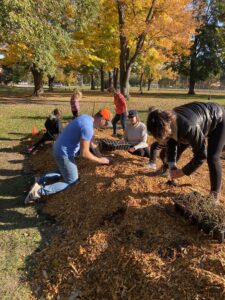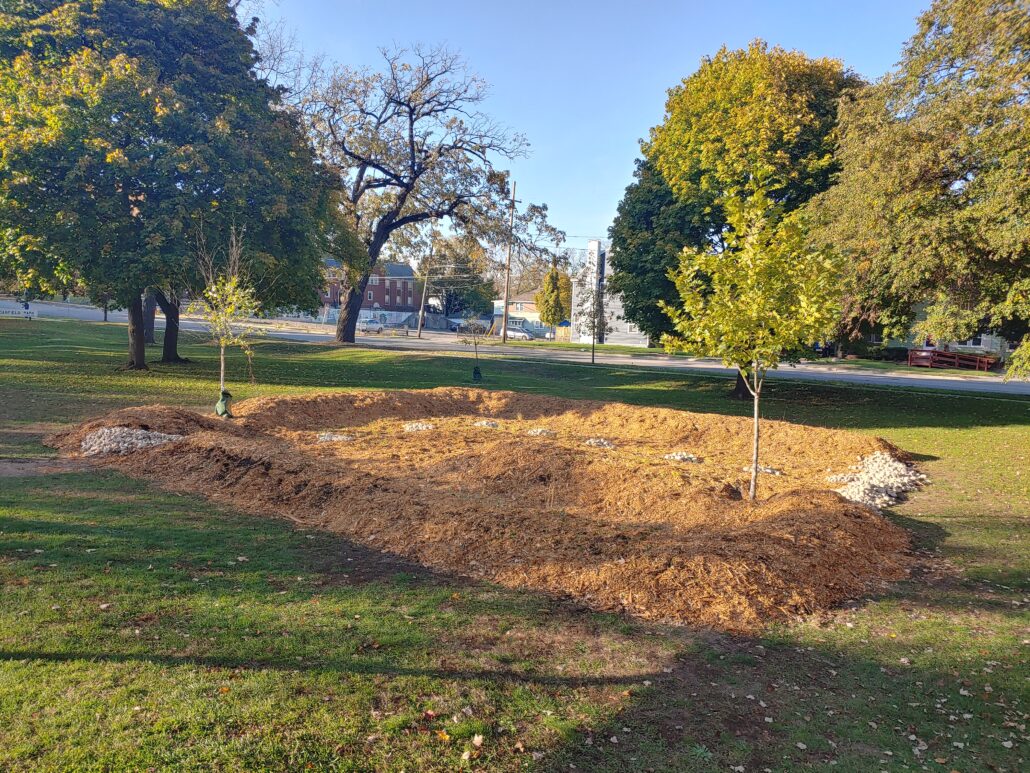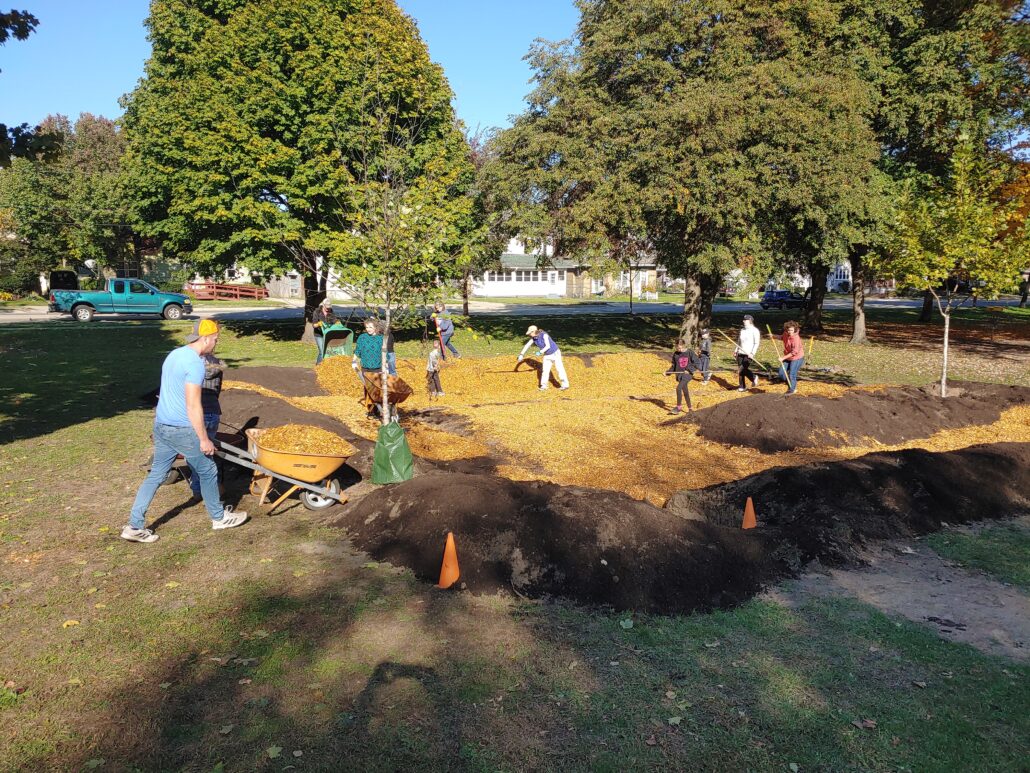Written by Kat Lykins
The Rainy Day Project is an initiative that has been a work in progress for the West Michigan Environmental Action Council (WMEAC) and the City of Grand Rapids for the last several years. Rooted in water resource management and sustainability, the project focuses on issues of equity, historical disinvestment, intentional collaborative engagement, and relationship-building in four Grand Rapids neighborhoods.
Historically the environmental movement catered to a selective group of individuals, disregarding the concerns and needs of entire demographics. “The exact geographic area that we want to reach is the one we historically have not been building relationships with,” said WMEAC Water Programs Manager, Carlos Calderon. The Rainy Day Project has made it a priority to build relationships and focus on those that were largely ignored and to educate about the practicality and potential of better water management practices.
Prior to the COVID-19 pandemic, the Rainy Day Contest provided the community with a method of engagement in water conservation and stormwater management. This contest centered in the Grand Rapids neighborhoods of Baxter, Garfield Park, Roosevelt Park, and the service area of Seeds of Promise (a nonprofit organization that helps Southeast Grand Rapids neighborhoods through partnership and collaboration, sustainable development practices, building local resident leadership, and meeting identified community needs). It provided qualifying homeowners with faucet aerators, low-flow showerheads and toilets, home water use evaluations, and “Rainscaping” assessments to encourage implementation of better landscaping practices to help manage stormwater runoff. The goal of the contest was to implement more sustainable water management practices, both indoors and out.
While this pilot phase of the project was educational and effective, the outreach was limited to only a few homes in the targeted area. Moving forward, “the organization needs to re-evaluate the outreach strategy and who we {WMEAC} were talking to and how we were talking to them,” Calderon said.

However, the COVID-19 Pandemic brought a halt to tangible progress in the Rainy Day Project. Demonstrations and in-person education were barred due to health and safety restrictions. Technical differences and practical difficulties among project participants also contributed to the initiative’s slowed success. The program, much like many things in the past few years, became largely virtual.
In 2021, WMEAC continued to work towards the project’s underlying theme. The project continues to look for practical and sustainable solutions that promote environmental protection in our target neighborhoods. The most recent solution took place at Garfield Park where a rain garden was installed to eliminate flooding in a parking lot. Community members volunteered throughout the process, participating in collaborative design workshops to develop a community-driven plan that included diverse native vegetation that will support local wildlife. A humble sense of community pride was embodied as the garden took the form of the letter “G.” The rain garden installation happened over three days earlier this month.
The hope for Garfield Park’s rain garden and for future Rainy Day Project demonstration sites is that they will be “designed by the community, installed by the community, and maintained by the community” Calderon said. WMEAC plans to expand the project to other stakeholders in the community, including local businesses within the City’s Neighborhoods of Focus.

Photo Credit: Lillian Danaher, Marketing and Climate Communications Intern at WMEAC

